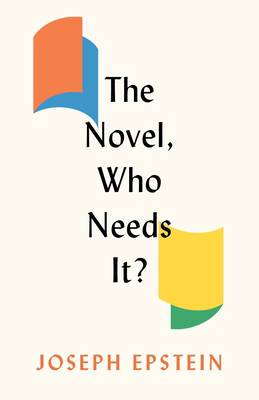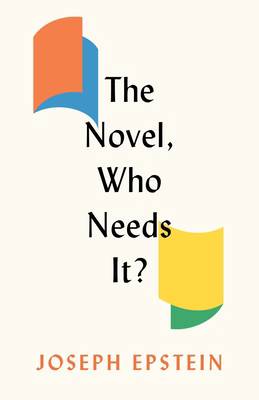
- Afhalen na 1 uur in een winkel met voorraad
- Gratis thuislevering in België vanaf € 30
- Ruim aanbod met 7 miljoen producten
- Afhalen na 1 uur in een winkel met voorraad
- Gratis thuislevering in België vanaf € 30
- Ruim aanbod met 7 miljoen producten
Zoeken
Omschrijving
In this brief but highly engaging book Joseph Epstein argues for the primacy of fiction, and specifically of the novel, among all intellectual endeavors that seek to describe the behavior of human beings. Reading superior fiction, he holds, arouses the mind in a way that nothing else quite does. He shows how the novel at its best operates above the level of ideas in favor of taking up the truths of the heart. No other form probes so deeply into that eternal mystery of mysteries, human nature, than does the novel. Along the way, Epstein recounts how we read fiction differently than much else we read. He sets out how memory works differently in the reading of fiction than in that of other works. He notes that certain novels are best read at certain ages, and suggests that novels, like movies, might do well to carry ratings, with some novels best read no later than one's early twenties, others not to be read before the age of forty.The knowledge one acquires from reading novels differs from all other kinds of knowledge, for the subject of all superior fiction is human existence itself, in all its variousness and often humbling confusion. The spirit of the novel entails questioning much that others consider home truths. This is demonstrated by the fact that so many important philosophers, social scientists, jurists, and other intellectuals have been devoted readers of fiction, among them Oliver Wendell Holmes, Jr., Michael Oakeshott, Edward Shils, and Clifford Geertz.The Novel, Who Needs It? takes up those current elements in the culture that militate against the production of first-rate fiction. Prominent among them are the rise of online reading, the expansion of creative writing programs, the artistically discouraging effects of political correctness, and the pervasiveness of therapeutic thinking throughout contemporary culture. As for the title, The Novel, Who Needs It?, Joseph Epstein's answer is that we all do.
Specificaties
Betrokkenen
- Auteur(s):
- Uitgeverij:
Inhoud
- Aantal bladzijden:
- 152
- Taal:
- Engels
Eigenschappen
- Productcode (EAN):
- 9781641773058
- Verschijningsdatum:
- 18/07/2023
- Uitvoering:
- Hardcover
- Formaat:
- Genaaid
- Afmetingen:
- 140 mm x 218 mm
- Gewicht:
- 362 g

Alleen bij Standaard Boekhandel
+ 72 punten op je klantenkaart van Standaard Boekhandel
Beoordelingen
We publiceren alleen reviews die voldoen aan de voorwaarden voor reviews. Bekijk onze voorwaarden voor reviews.








